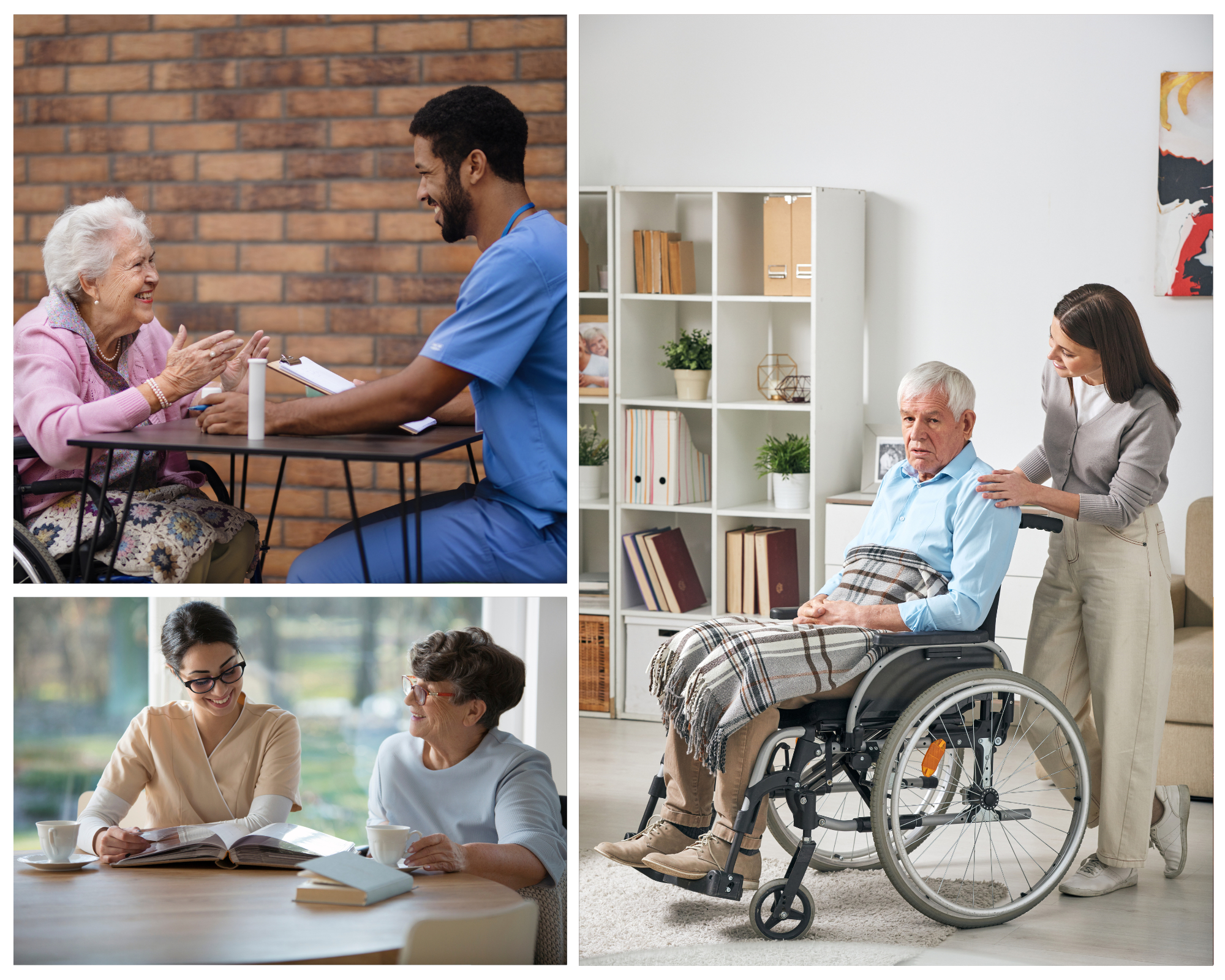
How Can In-Home Care Battle Loneliness in Seniors?
December 7, 2022How Can In-Home Care Battle Loneliness in Seniors?
Loneliness is something everyone experiences at some point in their lives, but it’s more than a passing sensation in seniors. According to a report by Cigna, 61% of older adults report feeling alone often, and this data isn’t even skewed by the global pandemic. The research was gathered in 2019, so it is safe to assume that, in recent years, rates of loneliness in seniors have only increased.
Feelings of loneliness in older adults can skyrocket anxiety and depression, and it can also have a physical impact. Several studies have shown that there is a connection between loneliness and mortality rates. Seniors are also at risk of “functional decline,” which generally refers to their ability to perform activities of daily living. Lonely seniors are more likely to need long-term care sooner than their peers.
In long-term care comes a positive: companionship. But how can in-home care battle loneliness in seniors? And why do seniors feel so lonely in the first place?
Why are seniors more likely to feel lonely?
Loneliness rates are increasing for all generations, but the sensation differs for many seniors. Upon retiring, seniors lose their avenue for meeting others and having regular conversations with a wider breadth of people. They can set up regular get-togethers with groups of friends, but as the years go by loved ones start to pass.
There are ways to make new friends, like joining a class or a book club. However, mobility comes into question for many seniors. Many seniors stop driving. Others may not be able to physically get around as easily as they once did and either needs a walker or wheelchair to move around. When that comes to be the case, many don’t leave the house as often as they once did.
Personal care and medical considerations—like the need for oxygen—can also discourage seniors from getting out of the home. And while aging at home is the ideal outcome for many seniors, living isolated at home can exacerbate existing health problems. This is where at-home caregivers can help.
How can in-home care battle loneliness in seniors?
At-home caregivers assist with any non-medical care needs a senior has. If personal care is a problem, the caregiver offers respectful, dignified help. On the other hand, if a senior has grown to dislike cooking, their home care aid can cook delicious and healthy meals for them. Or if managing which medicine to take when is dizzying, the caregiver can help create a plan of reminders.
Some seniors may feel they shouldn’t hire a caregiver if their needs aren’t any of the above, but caregivers can do much more than this. In addition to all of these crucial care services, caregivers act as regular companions. They can engage in thoughtful conversation or simply offer a listening ear should a senior need to talk. They’ll happily partake in a senior’s favorite hobbies and help them try new ones.
If the senior’s needs change as time passes, it’s no problem. The home care agency works with the senior to reassess their needs and make a plan of care that works best for them.
Home Care Powered by AUAF can help
For seniors in the Chicago area struggling with isolation and loneliness, Home Care Powered by AUAF may be the answer. For nearly 30 years, our staff has worked with seniors and their families to ensure they lead the happiest, healthiest lives possible through our non-medical care. Our home care services include:
- Personal care
- Meal preparation
- Medication reminders
- Light housekeeping
- Laundry
- Errands
- Brain games
- Companionship and social interaction
If you think a caregiver might be beneficial for you or your loved one, contact us today at 773-274-9262. We would be happy to help.
Articles:
-
How to Use FaceTime: a Senior’s Guide
March 20th, 2024 -
The Best Organic Cleaning Products for Caregivers
March 19th, 2024 -
Celebrating St. Patrick’s Day with Seniors
March 14th, 2024 -
Intellectual Activities for Seniors to Keep their Brains Stimulated
March 13th, 2024 -
Tips for Communicating with Seniors with Hearing Loss
March 12th, 2024 -
How to Learn a New Language as an Older Adult
March 7th, 2024 -
Foods that Support Bone Health in Seniors
March 6th, 2024 -
A Note to Our Staff for Caregiver Appreciation Day
March 1st, 2024 -
The Importance of a Senior/Caregiver Bond
February 21st, 2024 -
Recreational Sports as Fitness for Seniors
February 27th, 2024 -
Exploring the Wonders of Reminiscence Therapy
February 15th, 2024 -
Staying Educated on Alzheimer’s Disease and Dementia Care
February 14th, 2024
Call Now! 773.274.9262






